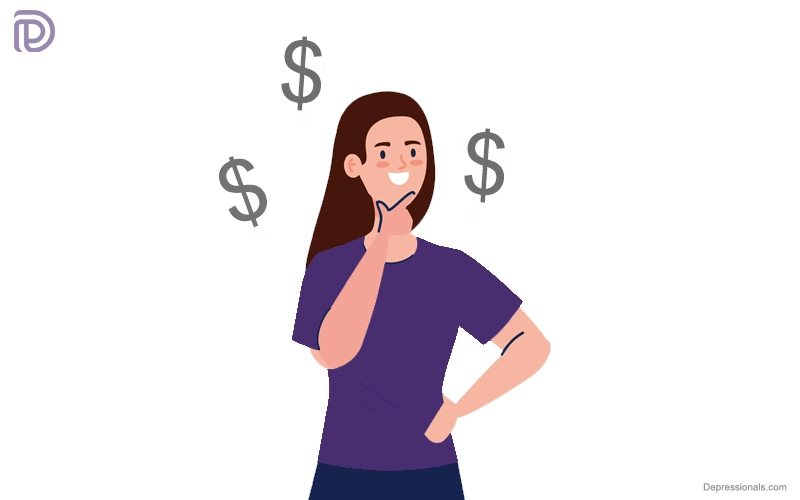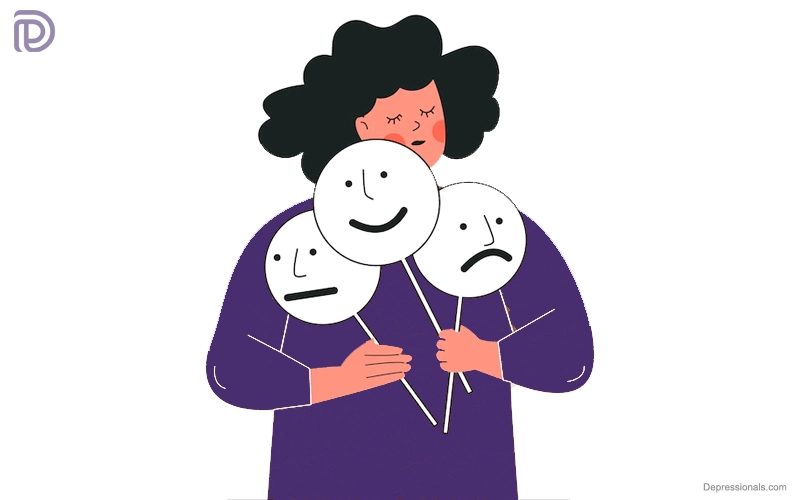Narcissistic personality disorder (NPD) affects people who have an inflated sense of self-worth. They also feel an intense need for admiration, attention and recognition from others.
Those with NPD might feel unappreciated and disappointed if they don’t receive the rewards they believe they deserve. Many people may not enjoy being around them because they see them as snobbish and conceited.
Many aspects of life can be affected by NPD, including:
- Work
- School
- Relationships
There are, however, certain lifestyle changes and talk therapy that can help manage the disorder.
Read: 17 Signs of Materialistic Person
Identifying narcissistic personality disorder traits
Typically, people with NPD describe themselves as:
- Arrogant
- Self-centered
- Demanding
Often, they think they’re superior to others or think they’re special in comparison with them. However, they may react poorly to perceived criticism because of their excessive need for praise and admiration.
Moreover, narcissists overestimate their own capabilities and accomplishments while understating the capabilities of others. Usually, they are obsessed with success, power, and beauty. Gambling or risky intimate behavior is even possible impulsive behavior.
There are some similarities between NPD and confidence. Positive NPD is not the same thing as healthy confidence.
Healthy self-esteem is usually accompanied by humility while NPD is rarely accompanied by such characteristics. They view themselves as superior to others and put themselves on a pedestal.
Also, check: Side Effects of Overthinking
Overt narcissism vs. covert narcissism
Narcissism can be classified into different levels and types now. But, experts focus mainly on two types of NPD.
Overt narcissism
It is the most recognized form of narcissism, also known as grandiose narcissism. There are several main characteristics of this type of behavior:
- Arrogant
- Pretentious
- Dominant
- Exhibitionist
- Aggressive
- Self-assured
Covert narcissism
Those with this other subtype of narcissism demonstrate the following attitudes and behaviors:
- Anxious
- An overly sensitive person, especially when it comes to criticism
- Insecure
- Defensive
- Depressive
- Withdrawn
It is important to realize that covert narcissism still manifests self-absorbed behavior, secretly believes that one is better than everyone else, and is unable to put themselves in others’ shoes.
Symptoms of narcissistic personality disorder

Early adulthood is the typical time of onset for NPD. Since the narcissistic personality affects their self-esteem, they may not recognize it. NPD can be diagnosed if you:
- Pretentiousness and boastfulness cause others to avoid you
- Relationships aren’t fulfilling for you
- If things don’t go your way, you become angry, unhappy and confused
The following issues continue to bother you:
- Work
- School
- Relationships
- Finances
- Alcohol
- Drugs
Contact a mental health professional or your doctor if you suspect you are suffering from NPD. Symptoms of this personality disorder can be assessed by them, as well as suggested treatments.
Read: Immature Personality Disorder
It is common for mental health professionals to diagnose mental disorders, like NPD, with the new edition of the Diagnostic and Statistical Manual of Mental Disorders (DSM-5). A person with NPD has the following traits according to the DSM-5:
- Excessive sense of entitlement and self-importance
- Constantly needing praise and admiration
- Due to a sense of superiority, you expect special treatment
- Exaggerating a talent or accomplishment
- Criticism that triggers a negative reaction
- Dreaming of power, beauty and success
- Exploiting others
- Being unable to recognize or not interested in the feelings and needs of others
- Arrogant behavior
The dentist or mental health professional may send you a questionnaire in order to determine if you meet these criteria. Testing may be performed for other mental illnesses and health conditions as well.
You should know about Insomnia disorder
Causes of narcissistic personality disorder
Psychiatric disorders are unclear in their causes but may be linked to a variety of factors including genetics and environment.
Children who experience the following during childhood are at greater risk of developing NPD:
- Overpraise or overpamper
- Excessive expectations
- Neglect or care that is unpredictable
- Trauma
- Abuse
- Rejection
Personality disorders can be worsened by stress.
Check: Types of Overthinking
Diagnosis of NPD
It may be challenging to diagnose NPD specifically based on a psychiatric assessment.
The first thing to know is that personality disorders cover a wide range of phenomena. It is also possible to have NPD and another condition at the same time.
Furthermore, an NPD may not recognize that their own behavior has contributed to their problems, and they may place blame on others instead.
It may be difficult for someone who has this condition to open up about their behavior and how it may be harmful. They may be highly sensitive to perceived criticisms or slights.
From the Diagnostic and Statistical Manual of Mental Disorders, Fifth Edition, the following criteria must be met in order to diagnose NPD:
- Self-importance is grandiose.
- It is the fantasy of infinite success, power, beauty and brilliance.
- Usually, this belief comes from thinking one is special, and can only understand or be understood by other people or institutions of special status.
- Excessive admiration is needed.
- An entitlement mentality, and an unreasonable expectation that they will automatically receive what they expect.
- Someone who exploits others for their gain.
- Empathy deficiency and inability to identify with or recognize the feelings of other people.
- An envious attitude that one holds toward others.
- An attitude or behavior that is arrogant.
There are mild to severe symptoms of NPD, and symptoms can vary.
There are also two types of subtypes proposed by experts:
- The grandiose subtype: This is characterized by excessive aggression, grandiosity and boldness.
- The vulnerable subtype: This type is characterized by defensiveness and hypersensitivity.
Recommended: How to help someone with Depression
Treatment for narcissistic personality disorder
The main narcissistic personality disorder treatment involves talk therapy, which is also known as psychotherapy. A medication may be prescribed to treat depression or another mental health condition if symptoms of NPD occur alongside depression. NPD cannot be treated with medications.
You can learn how to relate to others more effectively through talk therapy, which enables you to have more meaningful, intimate and rewarding relationships. You can greatly improve various aspects of your life by developing positive interactions with other people.
The benefits of talk therapy include:
- Collaborate better with colleagues
- Stay in touch with your friends and family
- You must know your strengths and potential in order to handle failures or criticisms
- Feelings are understandable and manageable
- Be able to cope with low self-esteem
- Ensure your goals are realistic
Psychologists may take a number of years to see an improvement in personality traits. If you do not see therapy as valuable during this period, you may be tempted to stop. But you must stick with your treatment. With the FindCare tool you can connect with a physician near you.
Take all prescribed medications and attend all therapy sessions. Your relationships with others and yourself will begin to improve as you practice.
Following are some lifestyle remedies you may find helpful during your therapy.
- Drinking alcohol, using drugs, and engaging in negative behavior should be avoided.
- Maintain a healthy mood by exercising three times per week.
- Stress and anxiety can be reduced by relaxing techniques, including yoga and meditation.
There is no quick fix for narcissistic personality disorder. Motivate yourself to keep working on your recovery goals and to remind yourself that you can improve damaged relationships in order to possibly become more content with your life.
Recommended: How to Deal With a Narcissist
Complications
There are a wide variety of complications that can arise from narcissistic personality disorder, including:
- Difficulties in relationships
- School or work problems
- Anxiety and depression
- Problems with physical health
- Misuse of drugs or alcohol
- Thinking or acting suicidally
Prevention
Currently, there is no known way to prevent narcissistic personality disorder due to its unknown cause. Nevertheless, the following may be helpful:
- If you have a mental health problem in childhood, seek treatment as soon as possible.
- Learn healthy communication or ways to cope with conflict and emotional distress by participating in family therapy.
- Consult a therapist or social worker if you need assistance with parenting.
What are the prognoses for someone with NPD?
Treatment benefits will vary according to how severe your symptoms are and your dedication to following them.
However, most patients with NPD get better over time. Stay motivated and actively seek change to have the best chance of repairing damaged relationships and becoming more satisfied with your daily life.
Living with narcissistic personality disorder
Narcissistic personality disorder is a hard disorder to treat, but you can get past it. It can be very helpful to see a therapist or a psychologist for counseling, as well as changing your habits of thought and behavior.
It is always your choice to change your behavior.
The treatment of narcissistic personality disorder is a subject of debate among professionals. Don’t hesitate to acknowledge the good things they do.
Acknowledge their disappointment when appropriate, and convey empathy when necessary. You should also be free to call out rude or haughty behavior whenever you observe it.
Then prepare for arguments based on your “tough-talk,” but keep in mind that this individual may be less motivated to seek help if he or she does not realize they are causing problems.
It may ease the anxiety of the individual with NPD, even if they don’t realize that their behavior is out of control or do not choose to apply for therapy to modify it, to call them out on their behavior knowing that they won’t get away with it.






Your articles are incredibly helpful to me. Thank you! May I request more information?
Thanks for posting such an excellent article. It helped me a lot and I love the subject matter.
You really make it seem so easy with your presentation but I find this topic to be really something that I think I would never understand. It seems too complex and very broad for me. I’m looking forward for your next post, I will try to get the hang of it!
After I initially commented I clicked the -Notify me when new comments are added- checkbox and now each time a comment is added I get four emails with the identical comment. Is there any manner you possibly can take away me from that service? Thanks!
naturally like your website however you need to test the spelling on quite a few of your posts. Many of them are rife with spelling problems and I to find it very troublesome to inform the truth on the other hand I?ll certainly come back again.
Thanks for your submission.
Great website. Plenty of useful info here. I am sending it to some friends ans also sharing in delicious. And obviously, thanks for your effort!
Hey there, You’ve done an excellent job. I?ll certainly digg it and personally recommend to my friends. I’m sure they will be benefited from this site.
May I request more information on the matter?
Thank you for writing the article. I like the topic too.
Wow, marvelous blog layout! How lengthy have you ever been running a blog for? you make running a blog glance easy. The total glance of your site is excellent, as neatly as the content!
Please tell me more about this
That’s what i mean when i say that content is the king!
How can I learn more about it?
Your articles are incredibly helpful to me. Thank you! May I request more information?
Your articles are extremely helpful to me. May I ask for more information?
Thank you for writing the article. I like the topic too.
I’ve to say you’ve been really helpful to me. Thank you!
Thank you for your articles. They are very helpful to me. Can you help me with something?
Thanks for posting such an excellent article. It helped me a lot and I love the subject matter.
Thanks for your help and for posting this. It’s been wonderful.
The articles you write help me a lot and I like the topic
You helped me a lot by posting this article and I love what I’m learning.
Thanks for posting such an excellent article. It helped me a lot and I love the subject matter.
It would be nice to know more about that. Your articles have always been helpful to me. Thank you!
Dude these articles are amazing. They helped me a lot.
I would like to know more about this subject if you don’t mind.
I really enjoyed reading your post and it helped me a lot
Thank you for writing such a great article. It helped me a lot and I love the subject.
you’re really a good webmaster. The site loading speed is amazing. It seems that you are doing any unique trick. Furthermore, The contents are masterwork. you’ve done a great job on this topic!
Thanks for another informative blog. Where else could I get that type of information written in such an ideal way? I’ve a project that I am just now working on, and I’ve been on the look out for such information.
This page definitely has all the information I wanted concerning this subject and didn’t know who to ask.
Having read this I believed it was very informative. I appreciate you taking the time and energy to put this content together. I once again find myself spending a significant amount of time both reading and leaving comments. But so what, it was still worth it!
whoah this blog is wonderful i really like reading your articles. Keep up the great paintings! You realize, a lot of people are hunting round for this info, you could help them greatly.
I am delighted that I discovered this blog, exactly the right information that I was looking for!